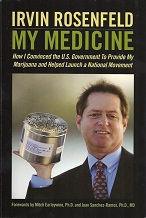While some cannabis users argue that marijuana is not addictive, others believe it is.
It is true that marijuana is less addictive than tobacco or other substances. Furthermore, some users display no addictive symptoms such as cravings or withdrawal.
Still, others do lose control over their use, leading to a higher tolerance for the drug. As a result, they need more weed to achieve the same high.
So, is marijuana addictive? Let’s delve into beliefs, perception and see what actually qualifies as addiction.
Defining ‘Marijuana Addiction’
Some people believe the myth that marijuana is not addictive, or that it’s just psychologically addictive. Unfortunately, these false beliefs have been perpetuated by a loose definition of addiction.
When people think of physical addiction, they tend to think of drugs like heroin. Heroin withdrawal includes severe symptoms such as shaking and vomiting. In contrast, stopping marijuana does not lead to such severe symptoms.
What’s more, marijuana withdrawal is not life threatening. As a result, many see marijuana as more ‘psychologically’ addictive rather than ‘physically’ addictive.
Still, the National Institute on Drug Abuse (NIDA) suggests that tolerance and any symptoms of withdrawal, whether mild or severe, reflect physical addiction. If tolerance to marijuana and symptoms of withdrawal occur within a 12-month period, your drug use has become problematic.
If you need to use marijuana to feel “normal” and you can’t stop even though it affects work, social or family obligations then you may be dependent on it. You may even go on to develop a tolerance to marijuana. This means, you’ll need more weed to get the same effect.
Symptoms of Addiction
Some individuals who use cannabis heavily and on a daily basis can’t stop even when it interferes with their quality of life. According to the DSM-5, this pattern of abuse and dependence is known as cannabis use disorder.
- You use larger amounts over a longer period.
- You want to cut back but you just can’t stop using.
- You spend too much time trying to get marijuana.
- You have strong cravings and desire to use.
- You can no longer meet obligations at work, school or home.
- Using affects your relationships.
- You continue to use even in hazardous situations.
- You continue using even when it presents physical or psychological problems.
- You develop a tolerance. (a) You need more to achieve the same high and (b) you experience a diminished effect when using the same amount.
- You experience withdrawal symptoms or you take it to relieve/avoid withdrawal symptoms.
For those who use cannabis heavily, stopping suddenly may cause withdrawal symptoms such as irritability, sleep difficulty, decreased appetite, anxiety and depression.
Cannabis vs. Other Substances
Who becomes addicted to cannabis? According to Dr. Kevin Hill, an addiction psychiatrist at McLean Hospital in Harvard Medical School, most people who use marijuana do not become addicted.
In fact, studies show that only 9 percent of adults using marijuana daily will become addicted. The number rises to 17 percent when cannabis use begins in the teens.
Marijuana differs from other substances because symptoms tend to be more subtle. Compared to nicotine, cocaine and alcohol, marijuana is the least addictive substance.
According to a heavily-cited study by NIDA researchers, tobacco is the most addictive substance with 31.9 percent of all users become addicted. Cocaine has the second highest addiction rate (16.7 percent) and alcohol has the third highest (15.4 percent).
Compared to all of these drugs, cannabis has the lowest addiction rate — only 9.1 percent of all users become addicted.
Read more http://www.leafscience.com/2015/11/11/marijuana-addictive/
Latest
Coronavirus Strikes Massachusetts Cannabis Company Employees
Reassessing the Essential: Cannabis in the Time of a Pandemic
5 Reasons To Try Aspen Valley CBG Flower (30% Off)
High Times Cannabis Cups Go Virtual In Wake Of Coronavirus Pandemic
Drug Enforcement Administration Proposes Plan To Expand Cannabis Research
Ghana Legalizes Cannabis For Medicinal And Industrial Uses
The cheapest legal weed in Canada: Discover these cannabis ‘value brands’
Cannabis and coronavirus: Here’s what you need to know
cannabis designs
The Best Of
WHO Rules CBD Should Not Be a Scheduled Drug

Dr Cristina Sanchez PhD video interview on medical marijuana and cancer

Biochemist Dennis Hill interview; Cannabis oil as a cure for cancer.

The unofficial World Record holder for cannabis smoking part 1





